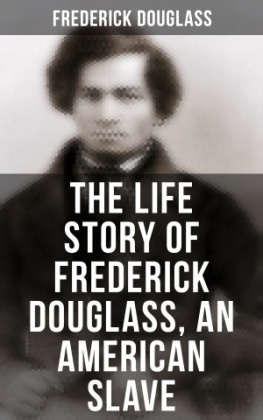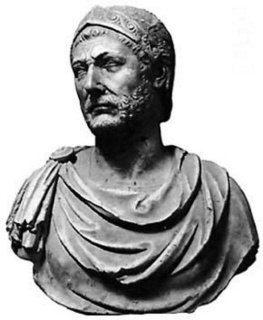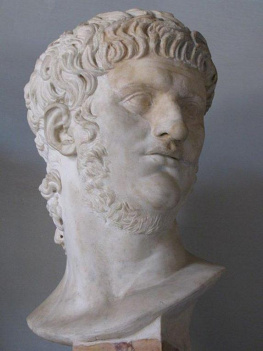THE AGE OF CROMWELL. 1642-1660
..................
WHEN IN THE LAST MONTHS of 1648 was signed the great peace which brought to an end the Thirty Years War and with it the mediaeval polity which it finally destroyed; as the army of diplomats whose work it was dispersed to their respective governments, the awe-inspiring mass of documents which formed the fruit of their long labors might have led men to believe that Europe would hasten to enjoy the peace which she so needed and which her people for the most part so greatly desired. But whatever hopes of quiet were entertained, were already far on the way to disappointment; for the Europe to which the diplomats returned was even then altered or altering before their eyes and already shaping itself for new conflict. Scarcely a state of any consequence prepared to recruit its resources by the arts of peace; scarcely a royal house but faced a crisis in its fortunes; scarcely a people but was stirring in unrest or already engaged in revolution. So far from ushering in a period of peaceful progress the Westphalian treaties became the starting point for new and bloody rivalries.
In Germany itself, so long afflicted with the horrors of a war that depopulated whole districts and dealt a blow to her resources and prosperity which, augmented by later conflicts, weakened her position for two centuries, almost the last vestige of central authority had disappeared. The imperial power, with all its tradition of form and precedence, remained but an empty symbol of unity over the four hundred and more sovereign states and free cities among which the lands between the Rhine and the Oder were divided. The house of Hapsburg, still the strongest of central European dynasties by virtue of its own personal dominions rather than by any support it commanded from the states of the Empire or its hold on the imperial dignity clung to its slight suzerainty over Germany, but found its solid compensations in its struggle with the Turks for the Balkan lands.
Among the German states which eluded its sovereignty, four, Saxony, Brandenburg, Bavaria, and the Palatinate, remained of importance in the European world. Among these the first two had already sought expansion in the east, where Prussia and Poland offered them their opportunity. The principle of primogeniture, spreading from house to house, assured, indeed, a check on further extension of that subdivision which had done so much to bring Germany to infinite and absurd partition. But with their slender patrimonies the petty sovereigns held the more zealously to every prerogative of independence and absolutism. For there was as little tendency among them to increase the shadowy authority of Emperor or Diet as to share their rule with their own subjects. Imperial Chamber, Aulic Council, and the local divisions of the so-called Circles, which might otherwise have become the nucleus of a united Germany, remained as impotent as the dreams of liberty which were being roused by events outside the heart of Europe, as the last of the great religious wars came to an end.
The states of the north and east were in no better case than their Teutonic kinsmen. Under the guiding genius of Gustavus and Oxenstierna, Sweden had risen with unexampled rapidity to the position of a first-rate European power. But there were already signs of the decline of the Vasa supremacy in the Baltic regions. Scarcely had Oxenstierna brought the fruits of his diplomacy from Osnabrck when he fell in disgrace with his brilliant, erratic queen Christina, whose extravagances of conduct and expenditure then threatened the fortunes of her crown, her country, and her house. Denmark, which might have taken advantage of her old rival, was held back by the death of Christian IV, which threw the state into the hands of a triumphant aristocracy whose rule soon brought the nation close to civil war. Russia, meanwhile, under the sway of Alexis, son of that Michael Romanoff who had established his dynasty in the preceding generation on the throne of Muscovy, was in a similar situation. Harassed by popular risings and disturbances engendered by reform of the Russian church liturgy which was destined to have far-reaching consequences, no less than by the restless ambitions of the Cossacks in the south, the Czar was driven to recognize the increasing power of the boyars or nobles in affairs of state. Amid these distractions he found little opportunity for foreign enterprise; and at the very moment of the peace, in which, though he took no direct share, he was involved by his alliances, he was confronted simultaneously by a revolt in his capital and a Cossack insurrection.
This owed its importance to the fact that it was the last serious attempt for two centuries or more to found another eastern European state, and its strength to the ambitions and ability of its leader, Bogdan Khmelnitzki. Aided by their old enemies, the Tartar Khans, the wild steppe horsemen shook the unstable Polish monarchy to its base. And their final enforced acceptance of the Russian suzerainty, when their fierce attack broke on the resistance of the Polish chivalry, laid the foundations for the next advance of Muscovy toward the shores of the long-coveted Black Sea, and marked another stage in the ascendancy of Russia over Poland.
The latter state was ill-prepared, indeed, to exercise her old authority over her far-flung, loosely woven provinces. Her new ruler, the Cardinal John Casimir Vasa, who came to power as the peace was being signed, found himself confronted not alone by Cossack rebels. Of scarcely less import was the schism between the Polish Roman Catholics and his Lithuanian subjects of the Greek communion. This was fraught with the more danger in that his Russian neighbors championed the cause of the Eastern Church. More threatening still was the claim of the turbulent Polish aristocracy to rights of confederation even against the crown itself. When this disintegrating process reached its culmination in the acceptance of that masterpiece of political fatuity, the liberum veto by which a single vote could block the action of the Diet, the state found itself close to anarchy. In the Polish situation appeared the climax of that general tendency of the eastern states toward allowing political power to slip from the hands of the crown to those of a lower class, which, in far different form, was the characte ristic as well of the western states in this momentous period. In this era of disorganization, the Muscovite and the Turk were held back from enlarging their territories at Polish expense by their own difficulties at home, and this alone preserved the declining power of Poland from the effects of the political weakness which Swedish attack was shortly to reveal.
Under far different circumstances yet characterized by not dissimilar spirit, the western powers faced the outcome of the peace. Italy, divided still between the petty sovereignties, the Papacy, and the conflicting claims of foreign powers, endured, save for Venetian conflicts with the Turk over Crete, a brief interval of respite from hostilities. Meanwhile Savoy found fresh occasion to pursue that tortuous and adroit policy by which she had already begun to eat up the peninsula as a man eats an artichoke, leaf by leaf. Only in the Spanish dominions there burst forth unparalleled disturbance. There, ten bloody days of insurrection brought the Amalfi fisherman, Masaniello, for the moment, into power, and his brief, tragic career was the wonder of western Europe in the year before the peace, as that of Khmelnitzki was soon to be to the east.











